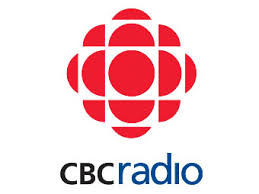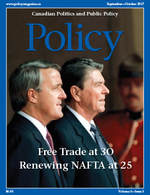
Policy Magazine, "Free trade at 30, Renewing NAFTA at 25" - a special issue marking 30 years since the negotiation of the Canada-U.S. Free Trade Agreement, and 25 years since a trilateral deal was struck to include Mexico, producing the NAFTA, including at Q&A with former Prime Minister Mulroney. Paul Frazer writes from Washington about Donald Trump's presidency and how it has altered every aspect of life in DC, from how the White House is covered to how and whom lobbyists lobby. However. Paul advises when the going gets frenetic in the NAFTA negotiations, Canadians should just chill. He also points out that Canada must maintain its energetic strategic advocacy in the United States. Ottawa, the provinces and other Canadian stakeholders must continue to travel the country targeting Washington and elsewhere those leaders critical to Canadian interests.
Canada's Hill Times takes a look at a U.S. president’s tweets and the role they play in foreign affairs and how Canadian diplomats are responding. Paul Frazer notes while they are thoughts of the moment and should be treated that way, they cannot be ignored. At the same time, Canada, and businesses with an interest in NAFTA, cannot simply rely on tweets. Frazer notes, "Canada’s approach with the U.S. “is a much more robust advocacy strategy” which “engages directly the prime minister.” It seems to have paid off...because it signalled “goodwill.”
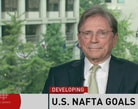
Paul Frazer talks with the CBC about what the U.S. NAFTA goals might be, whether Canadians should be concerned about the future of NAFTA and what sectors will be in play. Learn more here about the NAFTA renegotiation and what to watch for with talks possibly opening in the upcoming weeks.
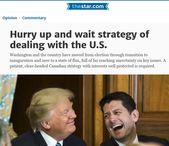
Paul Frazer writes in the Toronto Star "Ottawa did the “hurry up” part of meeting the new Trump administration very well, putting its U.S. strategy in place...but now the time has come to adjust to the open-ended environment of the second part"...waiting for Congress and the new Administration. "Canadian relations with Congress remain a high priority, as do White House and wide-ranging Administration contacts. Canadian efforts should be sensitive to the inclinations, pride, and political mood of the congressional Republicans and a reinvigorated Democratic minority — let alone the president’s unique personality." Read more about the dynamics of Washington in the Trump era
|
Paul Frazer and CFRA's Evan Solomon chat about the outcome of the first meeting between Prime Minister Trudeau and President Donald J. Trump, including the importance of tweaking NAFTA and the sound footing for the Canada- USA relationship moving forward.
|

Paul Frazer speaks to CBC's The National about the impending visit of Prime Minister Trudeau to Washington to meet with President Trump and offers background on how Canada has worked to set the scene and make the visit a productive and positive one. He talks also about the need to identify the new points of contact with President Donald Trump in order to secure a relationship larger than both national leaders. In an interview with Global News, Paul notes, "look what we have developed together" -- important considerations in the path forward for the two nations. He also chatted about the visit with Rosemary Barton on CBC's "Power and Politics" program. As the visit got closer, further discussion, not only of the preparatory meetings but what we should look for coming out of the meetings. a

Paul Frazer writes in the special January/February issue of Policy Magazine of the uncertainty of facing a ringmaster president who acts and speaks on his own terms, and in his own time. He notes, "Trump trampled long-standing norms in his presidential campaign. Canada must identify the new points of contact with a larger-than-life President-elect and use them effectively to secure a relationship larger than both national leaders."
|
Paul Frazer spoke with CBC News' Michael Serapio about the potential impact on Canadian interests of Donald Trump's economic plan unveiled in Detroit August 8, 2016 . A key element was Trump's threat to re-negotiate NAFTA and to reject the TPP.
|

Paul Frazer spoke with The Lobby Monitor about the status of Canadian corporate representation in Washington, DC. Paul said, "...that Canadian companies need to be more aware of what their asks and interests are when it comes to lobbying in Washington. He also added that companies, especially those that are publicly traded, have a responsibility to their shareholders and employees 'to be very active in Washington or at the state level or both.'"
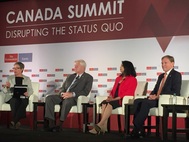
On June 8, Paul Frazer took part in a panel discussion at the Canada Summit, a day-long event sponsored by The Economist. He was part of the "What if..." panel which explored a number of hypothetical situations -- from drought to a Donald Trump presidency -- and how Canada would be affected and how the country and the international community should respond.
Paul was joined by former Deputy Prime Minister John Manley and Linda Nazareth of the MacDonald Laurier Institute. The conversation was moderated by Madelaine Drohan of The Economist.
Paul was joined by former Deputy Prime Minister John Manley and Linda Nazareth of the MacDonald Laurier Institute. The conversation was moderated by Madelaine Drohan of The Economist.

Paul Frazer appeared on CBC News Network, speaking with Andrew Nichols. He analyzed a speech by Donald Trump on American manufacturing and his trade policy platform. Paul provided insight on the strength and importance of trade deals - especially the North American Free Trade Agreement (NAFTA). These comments come a day before the North American Leaders Summit meeting in Ottawa.
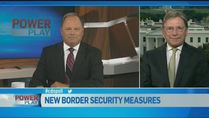
Paul Frazer spoke with Don Martin on CTV's Power Play about the Canadian government's announcement of legislation facilitating information sharing about those driving across the United States-Canada border. This change would fulfill a portion of the Beyond the Border agreement on which Paul has frequently provided commentary.
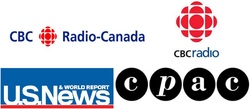
Paul Frazer did a series of interviews last week on the occasion of Prime Minister Justin Trudeau's official visit to the United States and the State Dinner hosted by President Obama. Paul was mentioned in articles by Politico and U.S. News and World Report. He was interviewed by CBC News, Global National News (twice), CTV News, Newstalk 1010 Toronto, and CBC Radio's The House. Paul also spoke with French-language programs Revue Politique on CPAC (22:20) and Coulisses du pouvoir (17:00) on Radio-Canada.
|
|
Paul Frazer made his first comments about Prime Minister Justin Trudeau's state visit to Washington, DC on Monday to the Toronto Star. He notes the curiosity surrounding the new P.M. and that the U.S. Administration is looking forward to making the trip a success.
|
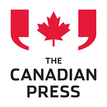
Paul Frazer was quoted by the Canadian Press about the U.S. Senate Homeland Security and Government Affairs Committee's February 3 hearing on Canada's Syrian refugee program. This followed a tour of eight CBC radio interviews on the same topic with stations from Newfoundland to British Columbia.
|

Paul Frazer and PD Frazer Associates were highlighted in Canadian Chamber of Commerce's annual report as part of their role as special adviser to the Chamber. Paul has done much work with the Chamber over the years, including presentations for its executive board and sector committees and writing regular briefs on Washington for its national membership. (Page 25)

Paul Frazer was quoted by the Toronto Star's Mitch Potter about border security in light of the refugee plans in Canada and the United States.

Paul Frazer spoke with the Toronto Star's Tim Harper with a first look at the foreign affairs concerns for Prime Minister-designate Justin Trudeau, with a special focus on the Canada-U.S. relationship.
Rob Placek wrote in The Hill about the need for startups and disruptors to meet Congress and regulators in Washington in order to find partners in promoting and protecting growth in the "new economy." |

Startups and disruptors have risen to prominence over the past few years. From Uber to Kickstarter, these young companies are taking on big businesses and providing new services. PD Frazer's Rob Placek spoke with Silicon Prairie News about how startups need to keep government relations in mind while they try to change the world. First question: Does you member of Congress know your startup exists?
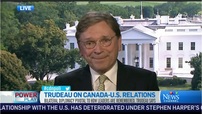
Paul Frazer was a guest on CTV's Power Play where he commented on U.S.-Canada relations following Justin Trudeau's policy speech on June 22, 2015. He admits the relationship has been rocky in light of issues like Keystone XL, but stresses that it "is not an antagonistic relationship."

Paul Frazer notes that American business people have calmed to the new realities in Alberta with the recent historic election of an NDP majority. He goes on to note that he has "every impression that the premier is a very pragmatic individual." Read more of his comments to the CBC.

Paul Frazer discussed the state of play with U.S.-Canada relations, touching on a variety of important public policy issues during a March 14 discussion on CJAD 800 with Todd van der Heyden.

Following the attacks in Québec and Ottawa recently, The Economist takes a look at the impact on the once seamless border between the U.S. and Canada. Paul Frazer comments that since the northern border “just doesn’t squeak as loud as the southern border" it leads to a lack of focus on the importance of shoring up issues at the border through policy and regulatory action - endangering the safety of all North Americans.

In Washington, Canadian issues and interests aren't always a slam dunk. Paul Frazer adds his insights in this article on the U.S. midterm results and their impact on Canada in the Toronto Star.

Paul Frazer gives a brief update on the state of affairs between the U.S. and Canada in a conversation with the Canadian Chamber of Commerce. He touches on issues such as Buy America, the Keystone XL pipeline, and cross-border infrastructure such as the Detroit-Windsor International Crossing.

Paul Frazer discusses the calculus behind a possible run for president in 2016 by former U.S. Senator Hillary Clinton in a Mitch Potter story in the Toronto Star. Frazer believes there is still much more time for Clinton to make a final decision and a variety of factors - including her upcoming change in status as grandmother - that will have a significant impact.
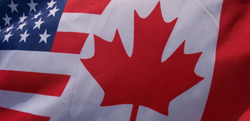
Last week, Paul Frazer, President of PD Frazer Associates, chaired two sessions on the importance of the bilateral relationship between the U.S. and Canada at an event hosted by the Canadian Embassy. Attending were dozens of policy specialists from the ten provincial and three territorial governments in Canada. These intergovernmental affairs representatives discussed a number of economic, trade, border security, and political affairs issues.
During one of the panels that Frazer hosted, the provincial and territorial officials heard representatives from the U.S. State Department, U.S. Department of Homeland Security, and the Office of the U.S. Trade Representative.
On Friday morning, the group was given some insights on the U.S.-Canada relationship, the importance of provincial/territorial and state interactions, and the need for sub-national governments to have a "face" in Washington to advocate for their interests. This discussion played off remarks from Frazer and U.S. Congressman Bill Owens (D-NY). Rep. Owens serves on the House Appropriations and Homeland Security committees and is the co-chair of the House Northern Border Caucus, which seeks to raise the profile of important U.S.-Canada issues in the U.S. House of Representatives.
PD Frazer Associates is pleased to continue to provide insight and analysis on the U.S.-Canada relationship, particularly as it relates to promoting and protecting the interests of Canadian provincial and territorial governments and constituent businesses. We appreciate the opportunity provided by this Embassy meeting to draw upon Frazer’s expertise in this area to enhance the efforts of all levels of government in managing this very significant bilateral relationship.
During one of the panels that Frazer hosted, the provincial and territorial officials heard representatives from the U.S. State Department, U.S. Department of Homeland Security, and the Office of the U.S. Trade Representative.
On Friday morning, the group was given some insights on the U.S.-Canada relationship, the importance of provincial/territorial and state interactions, and the need for sub-national governments to have a "face" in Washington to advocate for their interests. This discussion played off remarks from Frazer and U.S. Congressman Bill Owens (D-NY). Rep. Owens serves on the House Appropriations and Homeland Security committees and is the co-chair of the House Northern Border Caucus, which seeks to raise the profile of important U.S.-Canada issues in the U.S. House of Representatives.
PD Frazer Associates is pleased to continue to provide insight and analysis on the U.S.-Canada relationship, particularly as it relates to promoting and protecting the interests of Canadian provincial and territorial governments and constituent businesses. We appreciate the opportunity provided by this Embassy meeting to draw upon Frazer’s expertise in this area to enhance the efforts of all levels of government in managing this very significant bilateral relationship.
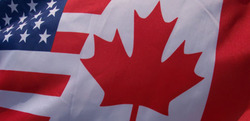
Following the March 26 swearing-in of Bruce A. Heyman as U.S. Ambassador to Canada, former Ambassador Paul Frazer was a featured panelist at a U.S. State Department briefing for the new U.S. representative in Ottawa. Frazer's remarks focused on issues surrounding the U.S.-Canada energy relationship and how to better enhance a mutual development of a positive, future strategy on effective and responsible development of natural resources through integrated value and supply chains as well as increased focus on energy technology, among other topics. We look forward to working with the new U.S. Ambassador in Canada to help promote and protect the world's largest bilateral trading relationship. Congratulations and best wishes to His Excellency Ambassador Heyman.

A major bump in the road to final approval of the Keystone XL pipeline emerged in Nebraska this week. Paul Frazer, an energy policy expert who has worked on KXL issues, notes that this setback is yet another inconvenience for Canada in a piece in the Toronto Star.

With the issuance of the final environmental impact statement, questions remain about the fate of the Keystone XL pipeline. Paul Frazer gives his insights on this important strategic energy issue on Global News with Tom Clark.

Like many Americans and Canadians, Paul Frazer is hopeful that yesterday's easy confirmation hearing for Ambassador-designate Bruce Heyman portends a swift confirmation vote in the Senate. Perhaps the holiday season will rile a spirit of bipartisanship in the Senate, getting Heyman a vote before the December 20th break. Frazer is quoted in this piece from the Ottawa Citizen.

In the November/December 2013 edition of Policy magazine, Paul Frazer writes about the recent government shutdown and continued political brinkmanship, specifically focusing on the U.S.-Canada relationship. Frazer notes that "it can be challenging enough in the best of times to get Washington to focus through the partisan noise on issues of interest to Canada. But when the US government is distracted, that job gets even harder." He goes on to say that the ripple effects of U.S. domestic action (or inaction) reverberate across the globe.

CBC News interviews Paul Frazer on "the big political picture" regarding the U.S. government shutdown and how a longer impasse abutting the October 17 debt ceiling deadline could have major impacts on global economy.

“The difference in the magnitude of these two events cannot be overstated. A short shutdown is one thing. We’ve seen them before. A U.S. debt default, we haven’t."
Paul Frazer provides insight on the impact of a prolonged U.S. government shutdown coupled with an unprecedented default on U.S. debt in this article by Mitch Potter of the Toronto Star.
Paul Frazer provides insight on the impact of a prolonged U.S. government shutdown coupled with an unprecedented default on U.S. debt in this article by Mitch Potter of the Toronto Star.

Paul Frazer joins Laura Dawson in a discussions about the political and policy background on the Keystone XL decision, including how a recent offer from Prime Minister Harper might impact President Obama's willingness to move ahead with approval of the controversial pipeline project. You can listen to Paul's comments on the latest edition of The House on CBC.

Paul Frazer, President of PD Frazer Associates, was named to the Canadian Business "Power 50" this week. The inaugural list includes Canada's top business and government professionals such as TD Bank Deputy Chairman Frank McKenna, Canadian Prime Minister Stephen Harper, and Daren Entwhistle of Telus. Calling Paul the "go-to guy for navigating Washington's political machine," Canadian Business recognizes Paul's ability to effectively advocate Canadian business interests in the U.S.

Following President Obama's speech on climate change at Georgetown University, Paul Frazer noted in the Toronto Star that Canadians should be “cautiously optimistic” about the Keystone XL pipeline’s eventual approval. Frazer, who has long worked on Keystone XL issues and comments on a number of other Canada-U.S. relations policy issues, noted that Obama’s language left “wiggle room,” but also pointed out that the President’s standard – that the pipeline not “significantly exacerbate the problem of carbon pollution” – has already been met according to the draft environmental impact study conducted by the U.S. State Department and released on March 1.

On CBC's The House, one of Canada’s premier political and federal affairs talk shows, Paul Frazer gives Canadian listeners insights on what sequestration is and, more importantly for them, what it means and how it will impact Canadians and the Canada-U.S. relationship.

Paul Frazer notes the need for Canada to "get on with the job" of developing its energy resources no matter the outcome of the Keystone XL decision in Washington. He also suggests Canada try to ramp up and tout its efforts on sustainability and social license in the energy space.

This Magazine featured PD Frazer Associates' President, Paul Frazer, in an article about the "invisible Canadian" who works as Canada's "main man" to promote and protect the interests of various Canadian businesses in the U.S. capital.




